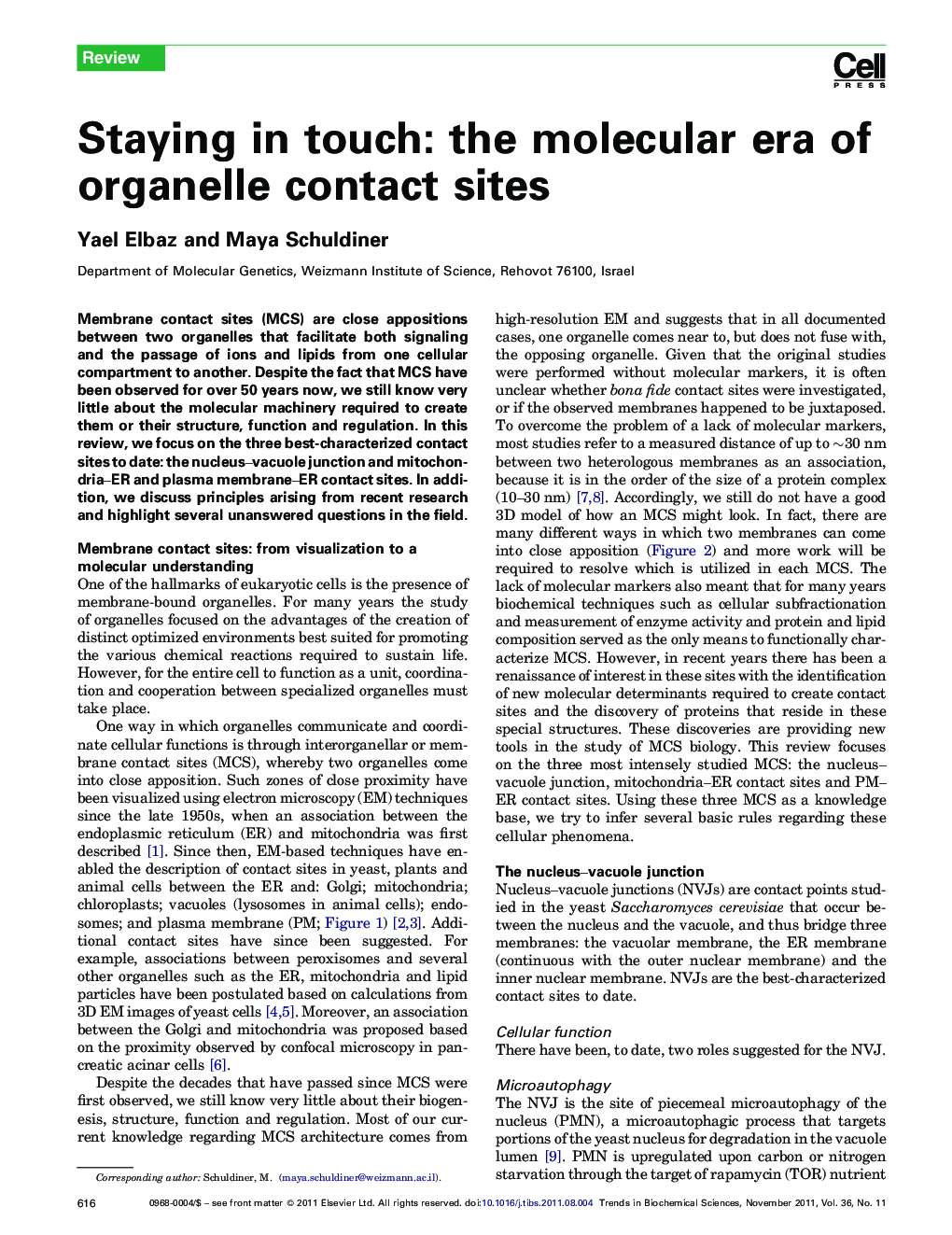| Article ID | Journal | Published Year | Pages | File Type |
|---|---|---|---|---|
| 2030896 | Trends in Biochemical Sciences | 2011 | 8 Pages |
Abstract
Membrane contact sites (MCS) are close appositions between two organelles that facilitate both signaling and the passage of ions and lipids from one cellular compartment to another. Despite the fact that MCS have been observed for over 50 years now, we still know very little about the molecular machinery required to create them or their structure, function and regulation. In this review, we focus on the three best-characterized contact sites to date: the nucleus–vacuole junction and mitochondria–ER and plasma membrane–ER contact sites. In addition, we discuss principles arising from recent research and highlight several unanswered questions in the field.
Related Topics
Life Sciences
Biochemistry, Genetics and Molecular Biology
Biochemistry
Authors
Yael Elbaz, Maya Schuldiner,
